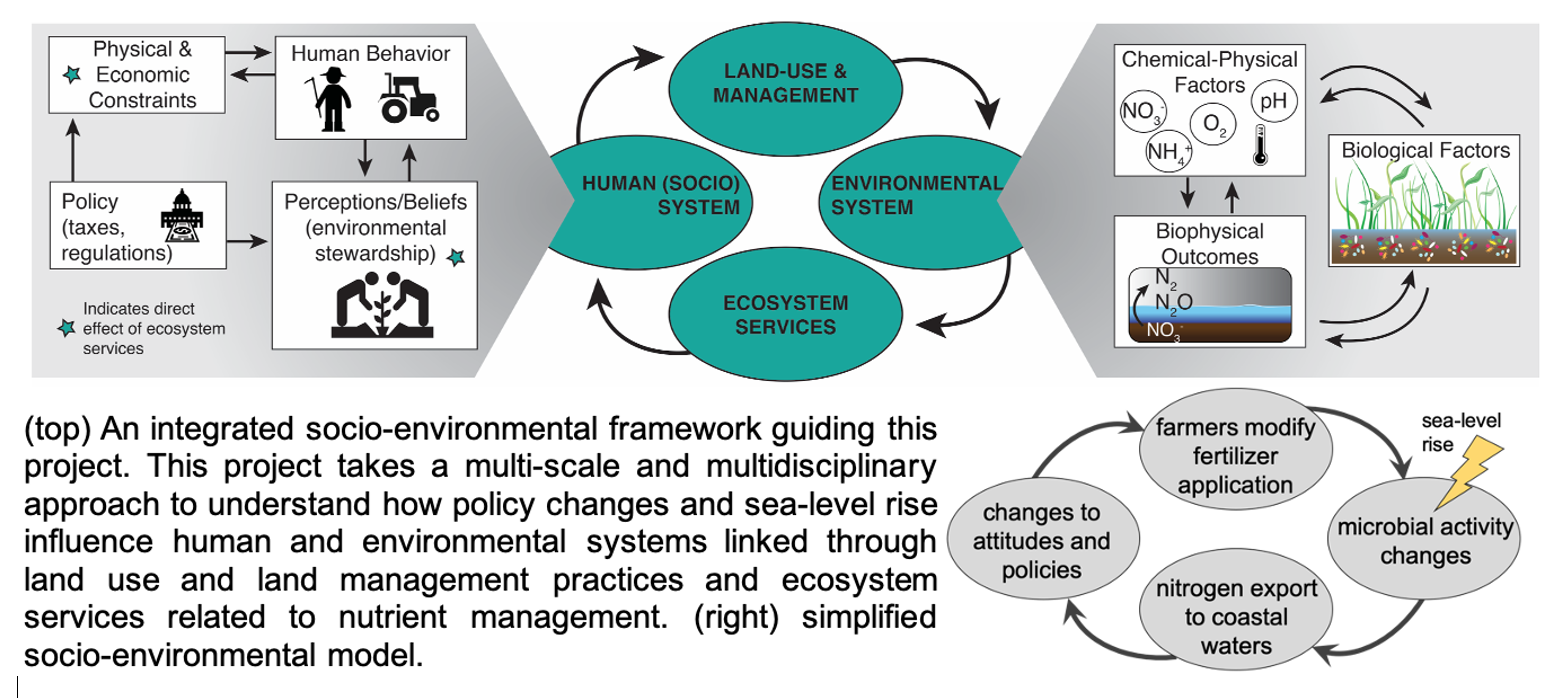We are recruiting a Biology MS student for an NSF-funded project An integrative analysis of perceptions, policy, and land use impact on coastal agricultural watershed resilience.
The Peralta Lab at East Carolina University (Greenville, North Carolina) has a two year MS Biology research assistantship available to start Summer 2021. The MS student will collaboratively work with engineering, economics, and coastal studies faculty at ECU, as well as other students, to support an NSF-funded project. This project examines how perceptions of ecosystem health, various land use policies, and sea level rise alter land use decisions by farmers, which then can change ecosystem processes related to nutrient cycling (see conceptual figure below).
The MS student will lead efforts to examine microbial nitrogen cycling processes in agricultural and adjacent wetland sites and how salinization (due to sea-level rise) inhibits microbial processes. The qualified candidate will have undergraduate experience in ecology, biogeochemistry, environmental science, and/or microbial ecology. Please contact AP to chat about the opportunity! To learn more about the ECU Biology MS program, please visit https://biology.ecu.edu/graduate-studies/masters-programs/.
The project is led by Dr. Ariane Peralta (Dept. of Biology) in collaboration with Drs. Randall Etheridge (Dept. of Engineering & Center for Sustainable Energy and Environmental Engineering), Greg Howard (Dept. of Economics), David Griffith (Dept. of Coastal Studies & Dept. of Anthropology), and Enrique Reyes (Dept. of Biology).
The Peralta Lab at East Carolina University (Greenville, North Carolina) has a two year MS Biology research assistantship available to start Summer 2021. The MS student will collaboratively work with engineering, economics, and coastal studies faculty at ECU, as well as other students, to support an NSF-funded project. This project examines how perceptions of ecosystem health, various land use policies, and sea level rise alter land use decisions by farmers, which then can change ecosystem processes related to nutrient cycling (see conceptual figure below).
The MS student will lead efforts to examine microbial nitrogen cycling processes in agricultural and adjacent wetland sites and how salinization (due to sea-level rise) inhibits microbial processes. The qualified candidate will have undergraduate experience in ecology, biogeochemistry, environmental science, and/or microbial ecology. Please contact AP to chat about the opportunity! To learn more about the ECU Biology MS program, please visit https://biology.ecu.edu/graduate-studies/masters-programs/.
The project is led by Dr. Ariane Peralta (Dept. of Biology) in collaboration with Drs. Randall Etheridge (Dept. of Engineering & Center for Sustainable Energy and Environmental Engineering), Greg Howard (Dept. of Economics), David Griffith (Dept. of Coastal Studies & Dept. of Anthropology), and Enrique Reyes (Dept. of Biology).
